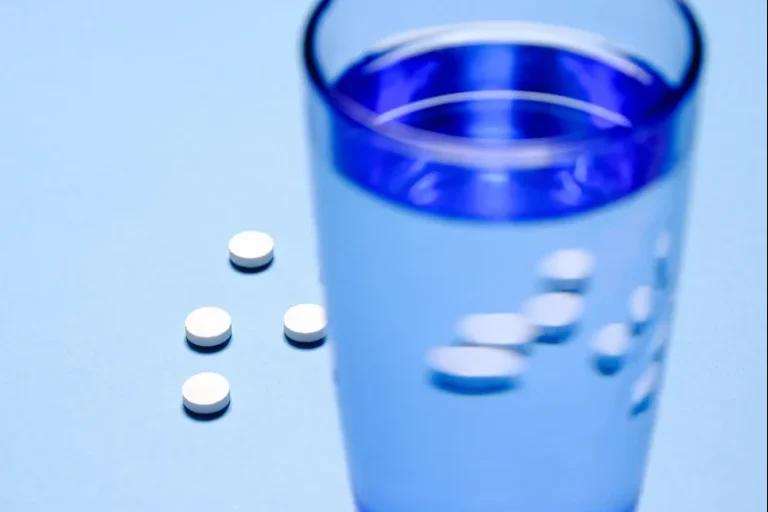Antibiotic induced diarrhea is one of the most common side effects of antibiotic therapy. Antibiotics kill off bacteria that normally reside in the intestines, allowing harmful organisms to multiply and cause infection. This results in inflammation of the intestinal lining, causing diarrhea.
Diarrhea caused by these medications usually occurs within 24 hours after taking the medication. However, diarrhea may occur up to 2 weeks after stopping the medication.
Symptoms of antibiotic induced diarrhea may include frequent loose stools, abdominal cramps, nausea, vomiting, fever, and dehydration (loss of fluids). If left untreated, diarrhea can lead to serious complications such as electrolyte imbalance, malnutrition, and dehydration. Clostridium difficile, a spore-forming gram-positive anaerobic bacteria and the leading cause of antibiotic-associated diarrhea.
Treatment for antibiotic-induced diarrhea involves discontinuing the offending drug and replacing fluids lost through diarrhea. Treatment should begin as soon as possible after symptoms develop.
Table of Contents
Antibiotics Induced Diarrhea
Antibiotics are used to treat bacterial infections. They are prescribed by doctors to treat infections caused by viruses, fungi, parasites, and certain types of bacteria.
Antibiotics can be taken orally or injected into a vein. Oral antibiotics are absorbed directly into the bloodstream, whereas IV antibiotics are delivered directly into the bloodstream.
The most commonly prescribed oral antibiotics include amoxicillin, ciprofloxacin, clindamycin, erythromycin, levofloxacin, metronidazole, penicillin V, tetracycline, and trimethoprim/sulfamethoxazole.
IV antibiotics include ceftriaxone, cefotetan, gentamicin, imipenem, linezolid, meropenem, piperacillin/tazobactam, vancomycin, and zosyn.
Antibiotics are effective against many different kinds of bacteria. The type of bacteria targeted determines the type of antibiotic chosen.
When antibiotics are prescribed, they must be taken exactly as directed by your doctor. Improper use of antibiotics can result in antibiotic resistance.
Causes of Antibiotic Induced Diarrhea
There are two main causes of antibiotic induced diarrhea. One is due to the action of the antibiotic itself. The second is due to the effect of the antibiotic on normal gut flora.
Antibiotics destroy beneficial bacteria in the digestive tract. As a result, the number of good bacteria decreases. This allows bad bacteria or the bacterial strains that are resistant to antibiotics, to grow out of control and produce toxins causing bacterial infection that cause diarrhea.
Bacteria that live in the digestive tract play an essential role in digestion. Good bacteria break down food to be properly digested and absorbed by the body.
Good bacteria also prevent the growth of harmful bacteria. Without them, harmful bacteria can multiply and cause disease.
Risk Factors for Antibiotic Induced Diarrhea
Certain factors increase your risk of developing antibiotic-induced diarrhea. These include:
Age – Older people are at greater risk of developing antibiotic-related diarrhea than younger people.
Gender – Women are more prone to antibiotic-induced diarrhea than men.
Medications – Antibiotic treatment and Certain other medications can cause diarrhea. Examples include antacids, antihistamines, decongestants, laxatives, and diuretics (water pills).
Other medical conditions – People with other health problems such as diabetes, heartburn, irritable bowel syndrome, ulcers, Crohn’s disease, diverticulitis, chronic kidney failure, liver disease, HIV infection, cancer, and rheumatoid arthritis are at increased risk of developing antibiotic-associated diarrhea.
Symptoms of Antibiotic-Associated Diarrhea
Symptoms of antibiotic-associated diarrhea usually appear about 24 hours after starting the medication. Some people experience diarrhea right away. Others have diarrhea later.
- Abdominal cramps or pain
- Nausea
- Bloating
- Fatigue
- Fever
- Loose Stools
- Blood in stool
Treatment of Antibiotic Associated Diarrhea
Treatment depends on how severe the diarrhea is and whether there are any complications. If you’re not sure if you need to see a doctor, contact your pharmacist or call your local poison center.
If you’ve taken antibiotics before, ask your doctor what type of antibiotics you should avoid using again. You might want to try another drug or use different doses or combinations of drugs.
ALSO READ
Prevention of Antibiotic-induced Diarrhea
You can reduce your chances of getting antibiotic-associated diarrhea by following these tips:
• Take only the prescribed dose of antibiotics. Don’t take extra medicine unless your doctor tells you to do so.
• Drink plenty of fluids while you’re taking antibiotics. This helps keep you from becoming dehydrated.
• Avoid certain foods that could make you sick. For example, don’t eat raw vegetables or salads until they’ve been cooked thoroughly. Also, avoid drinking alcohol during antibiotic therapy.
• Ask your doctor if it’s okay to drink milk products while you’re taking an antibiotic. Milk products contain lactose, which can interfere with the absorption of oral antibiotics.
Side Effects of Antibiotic Associated Diarrhea
Antibiotic induced diarrhea rarely has serious side effects until it transforms to a more severe diarrhea. However, it can lead to dehydration and malnutrition. It also increases your risk of Clostridium difficile colitis (C.diff), a potentially fatal intestinal infection.
FAQs
Are Antibiotics the only cause of medication associated diarrhea?
In addition to antibiotics, there are several other medications that may induce diarrhea. These include antacids, laxatives, antihistamines, and diuretics.
source: National Institutes of Health

